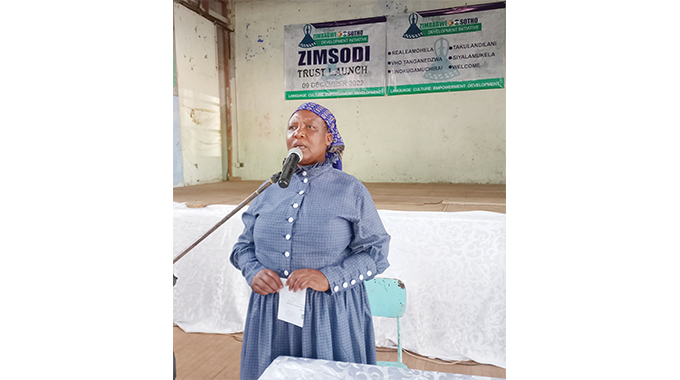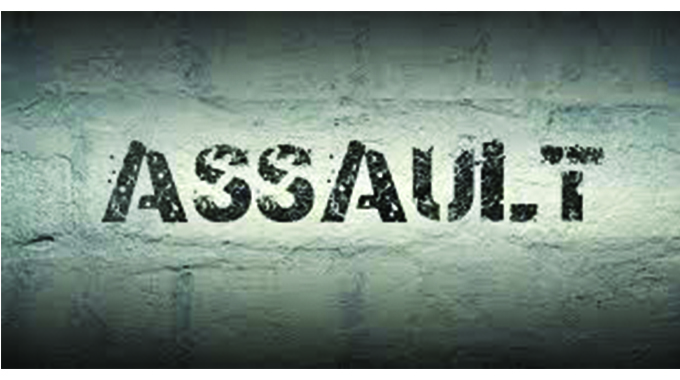Gwanda multi-linguist in bid to promote Sotho language

Sukulwenkosi Dube-Matutu, Matabeleland South Bureau Chief
WHILE the Government has made great strides in terms of promoting indigenous languages in line with the provisions of the Constitution, Gwanda multi-linguist Mrs Maretha Dube has embarked on a campaign to promote the Sotho language.
Mrs Dube, who is the national chairperson of the Zimbabwe Indigenous Languages Promotion Association (Zilpa) and a language research assistant at the Midlands State University (MSU)’s National Language Institute, observed that the incorporation of most formerly marginalised languages such as Sotho was still lagging behind.
Zimbabwe has 16 official languages, namely Chewa, Chibarwe, English, Kalanga, Khoisan, Nambya, Ndau, IsiNdebele, Shangani, Xhosa, Sign Language, Sesotho, Tonga, Tswana, Venda and ChiShona.

Midlands State University (MSU)
Cabinet recently adopted the Principles for the Languages Bill, which underpin the need for the promotion of multilingualism, respect of language rights and linguistic preference as fundamental to the process of nationalism, development of augmentative and alternative communication systems for people with impediments that inhibit communication.
It also recognises and promotes languages as cultural wealth. The Bill also seeks to see the establishment and maintenance of institutional structures, such as the National Languages Board, the National Languages Fund, and the Languages Database.
To promote the language, which is largely spoken in Gwanda and parts of Beitbridge district, Mrs Dube formed the Zimbabwe Sotho Development Initiative (ZIMSODI), which was launched last week.
The organisation, which was registered as a trust in December 2021, has seven members comprised of educationists.

Joshua Mqabuko Nkomo (JMN) Polytechnic College.
Mrs Dube has been involved in translating the country’s Constitution, various Government documents and school syllabus into several indigenous languages
In 2012, Zilpa under the leadership of Mrs Dube lobbied for the teaching of minority languages in schools and colleges
“In 2006, I was elected to become the chairperson of Zimbabwe Indigenous Languages Promotion Association (Zilpa), which seeks to promote formerly marginalised languages in the country,” said Mrs Dube.
“During my term of office, I noticed that whenever reports on various languages were presented the Sotho report was usually the weakest. Sotho is still lagging behind in terms of adoption by communities and schools.”
Mrs Dube said while languages such as Tonga are now examined at Grade 7 Level, it is worrying that Sotho is still lagging behind.
“As we speak, Sotho hasn’t reached O-level in terms of being examined. It always worried me that Sotho is still lagging behind and some schools are not even teaching it.”
Mrs Dube said the association seeks to promote the Sotho language. She noted that some Sotho-speaking teachers get trained in colleges, but are then deployed outside Sotho-speaking areas, making it difficult to ensure effective teaching of the language in schools.
Mrs Dube said while Sotho is being taught in secondary schools, learners do not have textbooks.
“After realising all these gaps I decided to establish a trust which would promote integration and development of the Sotho language,” she said.

Mrs Dube said ZIMSODI will conduct necessary research to help identify other Sotho-speaking people.
“We hope to document various aspects of the Sotho-speaking people so that the language can be preserved as well as their cultural practices and traditions. As a trust we will be working closely with the Sotho community as they are the key informants in this fact-finding mission,” she said.
“We also hope to identify different Sotho-speaking communities so that we collectively promote the language. We also wish to revive some of the cultural festivals as they are an identity of the Sotho community.”
Mrs Dube said plans are underway to establish a publishing house from where Sotho literature would be generated.
“The Sesotho Language and Culture Association penned some Sotho books for learners in Grade One to Seven before the competency-based curriculum was introduced. We need to revise these books and align them with the new syllabus and funding is required for this process to succeed,” she said.
Mrs Dube said language is a critical aspect of one’s identity.

Education
“Language is important as it defines one’s identity. Children also need to know and learn their mother tongue. Children understand better when they are taught in their local language,” she said.
“As a trust, we wish to ensure that the Sotho people don’t lose their identity and to preserve their culture. We would also like to appeal to well-wishers who can partner with us in this noble cause.”
Addressing delegates during the National Languages Conference in Victoria Falls in June, President Mnangagwa implored the nation to harness indigenous languages as a resource to facilitate social transformation, human capital development and wealth creation.
He also said the revitalisation of indigenous languages is essential for ensuring the continuation and transmission of culture, customs and history.
Mrs Dube’s journey of promoting formerly marginalised languages began in 2005 after she was invited to a Zimbabwe Indigenous Languages Promotion Association (Zilpa) meeting which was held at the Joshua Mqabuko Nkomo Polytechnic College.
At the time, Mrs Dube was a lecturer at the college. The following year she was appointed chairperson of the association.
A teacher by profession, Mrs Dube did her training at Mkoba Teachers Training College from 1993 to 1995. She taught in different primary schools until 2005. She then moved to Joshua Mqabuko Nkomo Polytechnic where she worked as a Sotho lecturer.
In 2019, Mrs Dube joined the MSU National Language Institute. — @DubeMatutu










Comments